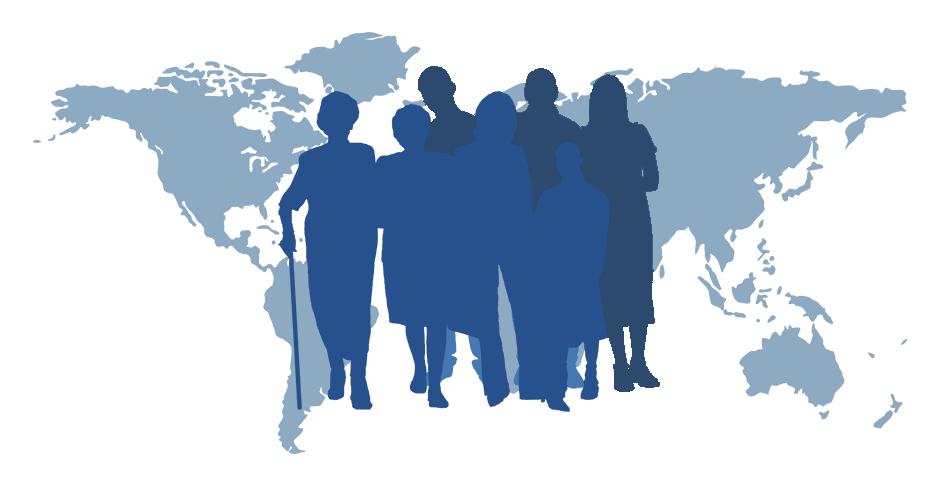
WORLD Policy Analysis Center
FACT SHEET: JANUARY 2020
- Freedom of religion has long been recognized as a fundamental value. At the same time, throughout history, individuals and governments have invoked religion to justify discrimination and violence.
- International and regional treaties and agreements—including the Universal Declaration of Human Rights—guarantee freedom of religion and prohibit religious discrimination, and recognize a set of key principles:
- “Freedom of religion” applies equally to the freedom to believe and the freedom to not believe
- Freedom of religion is divided into beliefs and practices: there are no restrictions on beliefs, but practices may be limited to protect the rights of others
- Freedom of religion cannot be used to justify discrimination or human rights violations
- Constitutions can advance these rights and principles by:
- Ensuring that the government does not privilege one religion over other religions or beliefs, or privilege religion generally over non-belief
- Prohibiting religious discrimination
- Protecting freedom of belief
- Protecting the freedom to practice religion up to the point where it infringes others’ rights
- Globally, many constitutions at least partly fulfill this vision:
- 41% of constitutions establish secularism or separation of religion and state
- 78% of constitutions explicitly guarantee equality or non-discrimination based on religion or belief
- 95% of constitutions guarantee freedom of religion or belief
- 25% of constitutions explicitly guarantee the freedom to not believe, practice, or disclose one’s religion
- 46% of constitutions explicitly prohibit freedom of religion from infringing in any way on the rights and freedoms of others
- However, many constitutions contain contradictory provisions:
- 9% of constitutions guarantee freedom of religion but also establish a state religion that governs public and/or private life
- 18% of constitutions guarantee freedom of religion but also give special recognition to a specific religion
- Nearly half of constitutions that include a commitment to secularism also include language privileging a specific religion or religion generally
- Moreover, 15% of constitutions include at least one provision limiting rights for minority religions, such as those:
- Specifying that religious law can prevail over some or all constitutional provisions (4%)
- Stating that legislation cannot contradict religious law (5%)
- Establishing that religion governs public life by requiring the executive to be a member of a specific religion and/or having religious law govern public as well as family life (10%)
- Across countries, constitutional protections of religious freedom and non-discrimination have made a difference:
- in Germany, the Constitutional Court invalidated a legal provision that banned teachers from wearing religious attire but made an explicit exception for Christian symbols and traditions
- in Malaysia, where Islam is the state religion, the Kuching High Court ruled that the constitutional freedom of religion nevertheless guaranteed the right to convert to another faith
- However, the gaps and contradictions in many countries’ constitutions threaten the rights of many religious minorities and non-believers
- Further, other constitutional provisions can influence whether religiously motivated discrimination takes precedence over equal rights in the courts:
- in the U.S., arguing in favor of a bakery that refused to make a cake for a same-sex wedding, the Department of Justice noted that equal rights on the basis of sexual orientation, unlike equal rights on the basis of race, received no special constitutional protection
ABOUT ADVANCING EQUALITY
To learn more, please read or download the open-access book Advancing Equality: How Constitutional Rights Can Make a Difference Worldwide (Jody Heymann, Aleta Sprague, and Amy Raub; University of California Press, 2020).
Analyzing the constitutions of all 193 United Nations countries, Advancing Equality traces 50 years of change in constitution drafting and examines how stronger protections against discrimination, alongside core social and economic rights, can transform lives.
ABOUT WORLD
The WORLD Policy Analysis Center (WORLD) aims to improve the quantity and quality of globally comparative data on policies affecting health, development, well-being, and equity. With these data, WORLD informs policy debates; facilitates comparative studies of policy progress, feasibility, and effectiveness; and advances efforts to hold decision-makers accountable.